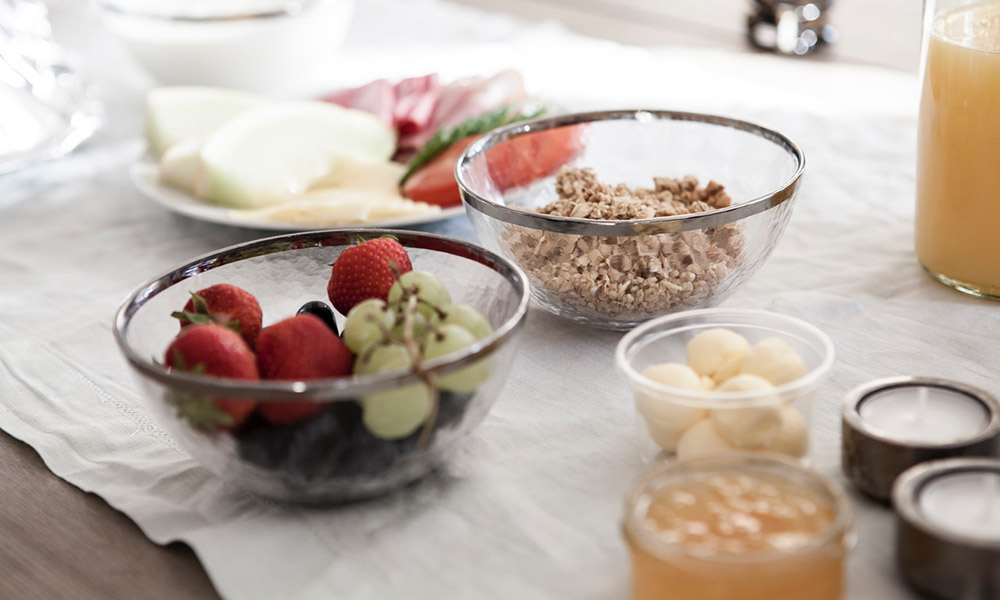Ten tips to help maintain a healthy immune system for the chillier months
Editorial Feature

Raid the cupboards, rummage around the drawers for woolly gloves and sling that scarf over your shoulder, because winter has finally arrived. It’s been a tough year, and all the social distancing has meant that colds and flu are hitting a lot harder than in previous years.
Checklist has teamed up with Gusto, the healthy organic drinks company, to bring you 10 great tips to keep your immune system in fighting condition this winter.
1. Eat well

Keep a diet low in sugar and processed foods as these can deplete our immune system. Eating an abundance of seasonal fruit and vegetables will help keep immune systems in good condition.
Opt for warm autumn foods such as sweet potatoes, cabbage, and kale. Nourish your body, aiming for at least five portions of fruit and vegetables a day.
Avoid eating refined sugar and processed foods as it depletes energy levels and our immune system.
2. Try going organic

Whenever possible, eat organic. It’s more nutritious, containing higher antioxidants, easier to digest and free from toxins and harmful chemicals.
It also ensures the highest standards of animal welfare and helps towards reducing climate change. Try buying local produce that hasn’t travelled far and every few days to reduce storage. And the more colour the better. Essentially eat a rainbow of coloured vegetables for optimal health benefits.
3. Take a dip

It’s a well-known fact that cold immersion, wild swimming, or cold showers are proven to help reduce muscle aches and strengthen the immune system. Give it a go, you’ll feel euphoric.
4. Exercise regularly

Exercise lifts our mood and makes us feel good, enhancing endorphins.
You don’t need to do high-intensity training or run ten miles, a brisk walk or online yoga session can be just as effective for getting the blood pumping. Try and get at least 30 minutes a day, preferably outside.
5. Love your gut health

Your digestive tract houses 70% of the cells that make up the immune system, so an unhealthy gut can lead to a compromised immune system.
Feed your microbes with real food such as fermented foods, nuts, seeds, good fats, and protein. Eat probiotic foods such as kefir, sauerkraut and Kombucha for a healthy gut.
Avoid inflammatory or acidic foods including refined sugar and pasteurised dairy which trigger imbalances and can create an unhappy gut environment.
6. Get enough sunlight

As daylight hours wane, make sure you capture enough sunlight and connect with nature daily to keep vitamin D levels topped up.
People low in vitamin D recover slower from infections and can be prone to autoimmune conditions. In the UK, a third of us are deficient in the sunshine vitamin.
Deficiency can cause symptoms such as more frequent illness, bone pain, insomnia and mood issues. In the autumn and winter months, it’s hard to absorb enough vitamin D due to the lack of UV rays and daylight hours.
7. Reduce coffee consumption

Try to reduce coffee as it interrupts nutrient absorption and increases cortisol production the stress hormone,
which reduces melatonin, the hormone that helps you sleep.
A bit of a rollercoaster for the nervous system. Instead, opt for turmeric lattes, herbal tea, or water to keep you hydrated.
8. Get your vitamins

Battling with bugs can mean free radical production can increase quickly, that’s why it’s important to ensure you consume high levels of antioxidants and essential vitamins for immune health.
Antioxidants can prevent and repair such damage. Essential vitamins for immune health include vitamin C for blood vessels, vitamin D to support immune function and zinc to reduce the severity of colds and flu.
9. Up your antioxidants

Eat your berries. Not only do berries have a low glycaemic index meaning they don’t spike your sugar levels, but they are also packed full of antioxidants.
In fact, elderberries are proven to reduce the severity of colds and flu. Elderberries have been used for centuries to tackle illness. Take daily throughout the winter months to ward off bugs. Also trying adding blueberries, blackberries, and other seasonal berries into your daily routine.
10. Sleep on it

Sleep and recovery are fundamental to immune health, not just the quantity but the quality too. Better habits can pave the way to better sleep, helping you gradually unwind.
Going to bed at the same time every night by setting a consistent sleep schedule will help regulate your body’s internal clock which will help your sleep-wake cycle. Try a magnesium or Epsom salt bath before bed to relax muscles and help you wind down.
Make sure you unplug an hour before bed, as technology devices emit a wavelength of light that effects our sleep. Avoid stimulants such as coffee and alcohol and be sure to dim the lights after dark to also regulate your cycle. Consider black out blinds or an eye-mask to aid restful sleep.
This article was produced in collaboration with Gusto, the organic drinks company.
To see your company in any upcoming features we are arranging please email laura@hurstmediacompany.co.uk or editorial@hurstmediacompany.co.uk






